Discover the fascinating world of lizards in Kruger and Marloth Park. Learn about these tiny dragons of the bushveld at Needles Lodge.
The African Wild Dog: A Symbol of Family and Loyalty
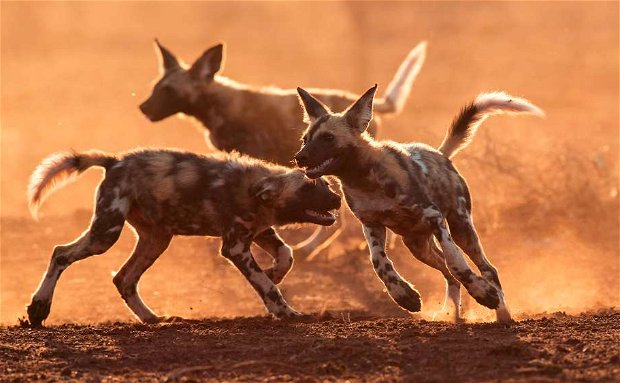
African wild dogs, known by different names in various African cultures, symbolize family and loyalty. Living in cooperative packs of up to 20 individuals, they work together in hunting, nurturing their young, and defending territory. However, they face challenges like securing food, avoiding predators, and raising vulnerable offspring. Conservation efforts and awareness are crucial to protect these remarkable creatures and their values.
Africa's vast landscapes are home to some of the world's most captivating and endangered wildlife, but among them, the African wild dog stands out. These highly social creatures are renowned for their unwavering family bonds, exceptional teamwork, and unmatched hunting skills. Yet, they are more than just remarkable predators; they symbolize family and loyalty in numerous African cultures.
The African Wild Dog in African Culture
Known by various names such as "painted dog" and "Cape hunting dog" in different African cultures, these animals hold a significant place as symbols of family, loyalty, and teamwork. In Zulu, they are called “Ingwe” or “Idube lethu”, which translates to "our dog" emphasizing their familial significance. In some regions, they are also seen as harbingers of good luck and prosperity.
Their status as a symbol of family is deeply rooted in their pack structure. African wild dogs form packs comprising up to 20 individuals, working collectively in hunting, raising their offspring, and safeguarding their territory. The pack is led by an alpha male and female, with all members being closely related.
The Assorted Roles within the Pack
Roles within the African wild dog pack are clearly defined:
Alpha male: This distinguished leader takes charge of decision-making and the pack's protection.
Alpha female: The second-in-command, she is responsible for nurturing the young and aiding in hunting.
Hunters: These skilled members track and capture prey.
Babysitters: These pack members care for the young.
Scouts: Responsible for vigilantly watching for potential threats.
Challenges Faced by African Wild Dogs
Life in the wild presents myriad challenges for African wild dogs, including:
- Securing sustenance: The African wild dog's unrelenting quest for sustenance is defined by their carnivorous dietary needs, which can pose challenges due to unpredictable prey availability influenced by location and season. In areas with stable prey populations, they enjoy a relatively easier time finding food, but scarcity or fluctuation of prey presents formidable obstacles. Competing with larger predators like lions and hyenas further complicates their hunt for sustenance. To adapt, African wild dogs have developed remarkable stamina, cooperative hunting strategies, and a capacity to cover vast distances in search of prey. Their patient and determined hunting methods underscore their unwavering commitment to securing sustenance.
- Predator avoidance: Survival for African wild dogs hinges on their ability to elude formidable predators like lions, hyenas, and leopards who view them as prey. This inherent threat demands unwavering vigilance and alertness as these carnivores navigate their territories. It's a continuous game of survival where any lapse in attention could result in peril. To counter these relentless threats, African wild dogs employ strategies like swift mobility and a tight-knit pack structure. They maintain a state of constant readiness, often relying on their cooperative strength to fend off potential attacks and secure their place in the intricate hierarchy of the African savannah.
- Raising offspring: Raising offspring is an intricate task for African wild dogs, with the odds stacked against them. The constraint of one annual litter intensifies the vulnerability of their young. Survival relies on the pack's unwavering unity and collective effort. Every member, from the dominant alpha pair to the supportive babysitters, plays a crucial role in nurturing and safeguarding the pups. This shared responsibility extends to ensuring their protection against formidable predators, providing sustenance, and teaching vital survival skills. The pack's commitment to raising the next generation exemplifies their remarkable cooperative nature, making them a symbol of family bonds and loyalty in the unforgiving wilds of Africa.
5 Facts You might not know about the African Wild Dog:
- They have a built-in GPS. African wild dogs have a special organ in their nose that helps them to navigate their way around. This organ is called the Jacobson's organ, and it allows them to smell the chemical trails left by other animals.
- They can eat their own vomit. African wild dogs sometimes regurgitate their food and eat it again. This is called regurgitation, and it is thought to be a way for them to get more nutrients from their food.
- They are the most efficient hunters in Africa. African wild dogs have a success rate of up to 80% when hunting, which is higher than any other predator in Africa. They are able to do this because they work together as a team and they are very fast and agile.
- They can jump 10 feet in the air. African wild dogs are also very agile. They can jump up to 10 feet in the air, which helps them to catch prey.
- They only have four toes on each foot. This is unlike most other dogs, which have five toes on each foot. The African wild dog's missing toe is thought to be an adaptation that helps them to run faster and more efficiently
The African wild dog is a truly remarkable creature. They are highly social, intelligent, and skilled hunters. They are also symbols of family and loyalty in many African cultures.
Despite their many strengths, African wild dogs are also facing many challenges. They are losing their habitat to human development, and they are being hunted by humans and other predators.
We must do everything we can to protect these amazing animals. We can support organisations that are working to conserve African wild dogs, and we can educate others about the importance of these animals.
If you ever have the privilege of encountering an African wild dog in its natural habitat, take a moment to admire this extraordinary creature and its profound family ties. They represent hope for the future of Africa's untamed landscapes.
For personalised assistance in planning your journey for a chance to witness these remarkable animals in their natural habitat, contact us at Needles Lodge.
Further Reading
Discover the fascinating world of lions in Kruger National Park. Learn about their pride dynamics, hunting strategies, and conservation efforts. Plan your safari with Needles Lodge today!
Explore the incredible world of cheetahs—Africa’s fastest predator. Discover their hunting strategies, conservation challenges, and best places to spot them in Kruger National Park.

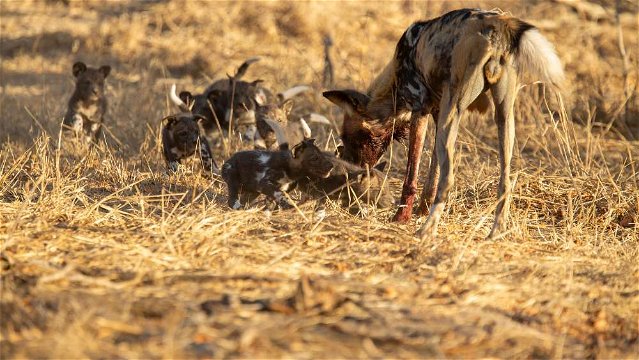
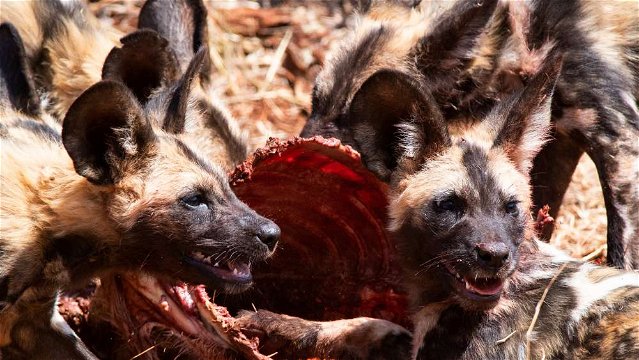
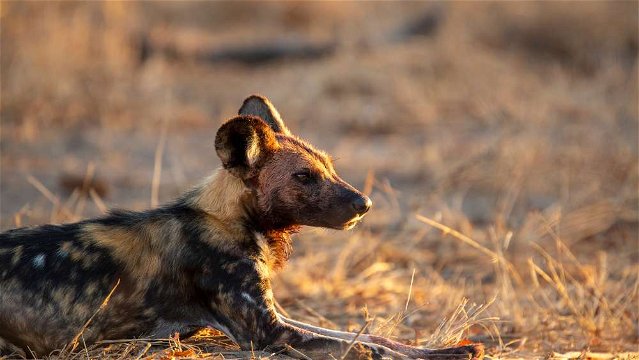
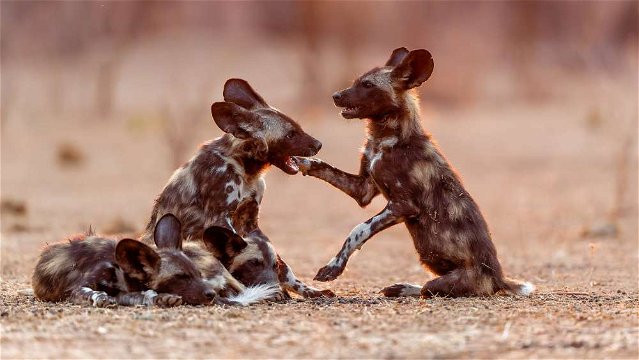
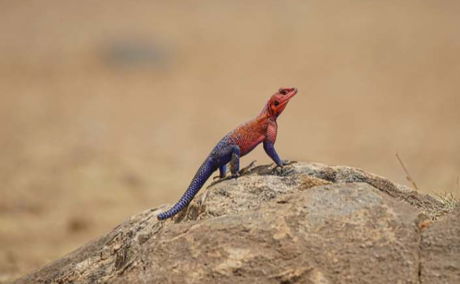
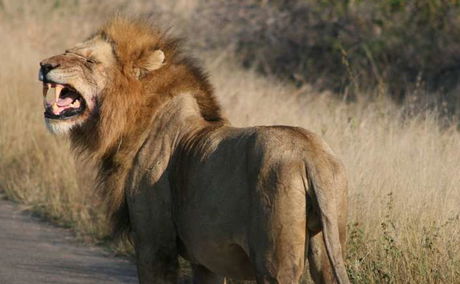
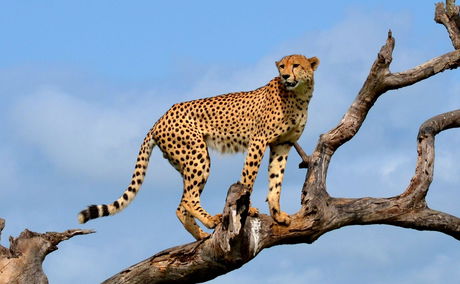
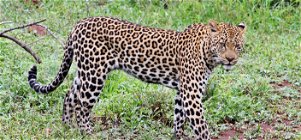
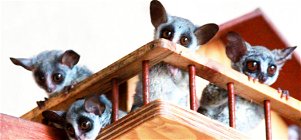
Share This Post